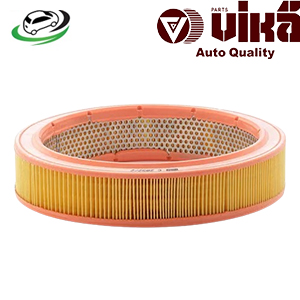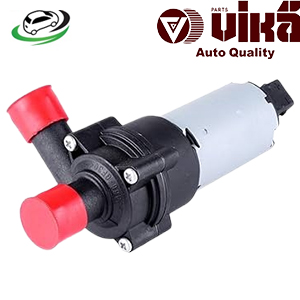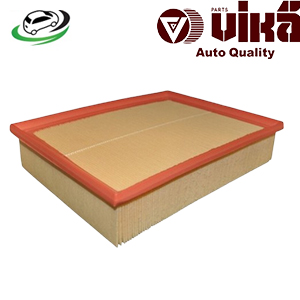-33%
Get VW California T4 Camper/ Transporter T4 Bus/ Transporter T4 Van/ T4 Platform Air Filter 74129620
The air filter is a crucial component in the air intake system of an internal combustion engine. Its primary role is to filter out contaminants and impurities from the air before it enters the engine. Clean air is vital for efficient combustion, optimal engine performance, and longevity. Understanding the function, design, types, maintenance, and importance of air filters can help vehicle owners appreciate their role in engine health and performance.
2. Function of the Air Filter
The air filter serves several critical functions in an engine’s operation:
- Filtration of Contaminants: The air filter captures dust, dirt, pollen, debris, and other particulate matter from the air. This is essential because contaminants can lead to engine wear, reduced performance, and potential damage.
- Ensuring Optimal Air-Fuel Mixture: An engine requires a precise air-fuel mixture for optimal combustion. A clean air filter ensures that the right amount of air enters the combustion chamber, contributing to efficient fuel combustion and power generation.
- Enhancing Engine Performance: Clean air promotes better combustion efficiency, leading to improved engine performance. A well-functioning air filter can enhance horsepower, torque, and throttle response.
- Fuel Efficiency: A clean air filter helps maintain optimal air intake, leading to more efficient combustion. This efficiency translates to better fuel economy, as the engine can produce the required power without using excessive fuel.
- Reducing Emissions: A properly functioning air filter helps ensure complete combustion by providing clean air to the engine. This efficiency reduces harmful emissions, contributing to a cleaner environment and meeting regulatory standards.
3. Types of Air Filters
There are several types of air filters used in vehicles, each designed to suit specific engine requirements:
- Paper Air Filters: These are the most common type of air filters found in many vehicles. Made from pleated paper, they provide efficient filtration at a low cost. However, they may need to be replaced more frequently compared to other types.
- Cotton Gauze Air Filters: Often used in high-performance vehicles, these filters are reusable and can be cleaned and re-oiled. They offer improved airflow and filtration compared to paper filters, making them popular among enthusiasts.
- Foam Air Filters: Foam filters are typically used in off-road vehicles and motorcycles. They provide excellent filtration and airflow, particularly in dusty environments. Foam filters can also be washed and reused.
- Synthetic Air Filters: Made from advanced materials, synthetic filters provide high filtration efficiency and durability. They can often last longer than traditional paper filters and are usually washable.
- High-Performance Air Filters: These filters are designed for performance vehicles and enthusiasts looking to maximize engine airflow and power. They may include features such as larger surface areas and specialized materials to enhance filtration and airflow.
4. Design and Construction of Air Filters
Air filters are designed to maximize airflow while effectively capturing contaminants. The construction of an air filter typically includes the following components:
- Filter Media: The filter media is the core component responsible for trapping contaminants. It can be made from various materials, including paper, cotton, foam, or synthetic fibers. The design and structure of the media determine its filtration efficiency and airflow capacity.
- Frame: The frame provides structural integrity to the filter and allows it to be securely mounted within the air intake system. Frames are usually made from plastic or metal and are designed to fit specific engine applications.
- Seal: A proper seal is crucial to prevent unfiltered air from entering the engine. The air filter typically has a rubber or foam gasket around its perimeter, ensuring a tight fit when installed.
- Pleats: Many air filters feature pleats in their design, increasing the surface area for better filtration and airflow. More pleats allow the filter to capture more contaminants while maintaining optimal airflow.
- End Caps: Some air filters have end caps that help secure the filter media and maintain its shape. These caps may be made from plastic or metal, depending on the filter’s design.
5. Importance of Air Filters
The importance of air filters in engine performance and vehicle health cannot be overstated. Here are several reasons why maintaining a clean and functional air filter is essential:
- Engine Protection: The air filter protects the engine from harmful contaminants that can cause wear and tear. By preventing dirt and debris from entering the combustion chamber, the filter helps extend the engine’s lifespan.
- Enhanced Performance: A clean air filter allows for optimal airflow to the engine, improving combustion efficiency. This results in better performance, including increased horsepower and torque.
- Improved Fuel Efficiency: A well-maintained air filter contributes to better fuel economy by ensuring that the engine receives the correct air-fuel mixture. This efficiency translates to cost savings for vehicle owners.
- Lower Emissions: By promoting complete combustion, a clean air filter helps reduce harmful emissions. This is especially important for meeting environmental regulations and contributing to a cleaner atmosphere.
- Prolonged Engine Life: Regularly replacing or cleaning the air filter can significantly extend the life of the engine. By preventing contaminants from causing damage, vehicle owners can avoid costly repairs and maintain their vehicles in good condition.
6. Signs of a Clogged or Dirty Air Filter
A clogged or dirty air filter can lead to various performance issues. Here are some signs that indicate it may be time to replace or clean the air filter:
- Reduced Engine Performance: If the vehicle experiences a noticeable decrease in acceleration, power, or responsiveness, it may be due to a clogged air filter.
- Poor Fuel Economy: A dirty air filter can negatively impact fuel efficiency. If fuel consumption increases without any other apparent reason, the air filter may be the culprit.
- Unusual Engine Sounds: A clogged air filter can lead to abnormal engine sounds, such as coughing or sputtering, particularly during acceleration.
- Check Engine Light: In some vehicles, a dirty air filter can trigger the check engine light. If this light illuminates, it’s advisable to inspect the air filter and other related components.
- Visual Inspection: Regular visual inspections of the air filter can help identify dirt, debris, or damage. If the filter appears discolored or clogged, it’s time for a replacement.
7. Maintenance of Air Filters
Proper maintenance of air filters is essential for ensuring their effectiveness and prolonging their lifespan. Here are some key maintenance tips:
- Regular Inspection: Check the air filter regularly, especially if driving in dusty or harsh conditions. Visual inspections can help identify any buildup of dirt or debris.
- Replacement Schedule: Follow the manufacturer’s recommendations for replacing the air filter. Depending on the vehicle and driving conditions, this may range from every 12,000 to 30,000 miles.
- Cleaning Reusable Filters: If using a reusable air filter, such as a cotton gauze or foam filter, follow the manufacturer’s instructions for cleaning and re-oiling. This process typically involves washing the filter in a mild detergent solution, rinsing, and applying a specialized oil.
- Check for Seal Integrity: Ensure that the air filter is properly sealed within its housing to prevent unfiltered air from entering the engine. A compromised seal can lead to engine damage.
- Consider Driving Conditions: If frequently driving in dusty environments, off-road conditions, or heavy traffic, consider replacing or cleaning the air filter more often to maintain optimal performance.
- Professional Inspection: If uncertain about the condition of the air filter or experiencing performance issues, consult a professional mechanic for a thorough inspection and recommendations.
8. Replacing the Air Filter
Replacing an air filter is a straightforward process that can often be done by vehicle owners. Here are the general steps for replacing a typical air filter:
- Gather Tools and Supplies: Before starting the replacement, gather necessary tools, such as a screwdriver or wrench, and the new air filter.
- Locate the Air Filter Housing: The air filter is typically located in the engine compartment. Refer to the vehicle’s owner’s manual for specific location details.
- Remove the Housing Cover: Depending on the design, you may need to remove screws, clips, or clamps securing the air filter housing cover. Carefully detach the cover to access the air filter.
- Remove the Old Filter: Take out the old air filter, noting its orientation for correct installation of the new filter. Check for any debris or contaminants inside the housing.
- Install the New Filter: Place the new air filter in the housing, ensuring it fits securely and correctly aligns with any seals or gaskets.
- Reattach the Housing Cover: Secure the air filter housing cover back in place, ensuring all screws or clips are tightened.
- Test the Engine: After replacing the air filter, start the engine and listen for any unusual sounds. Ensure that the vehicle operates smoothly.
9. Conclusion
The air filter is an essential component of an engine’s air intake system, playing a critical role in maintaining engine performance, fuel efficiency, and longevity. By effectively filtering out contaminants and ensuring optimal airflow, air filters contribute to the overall health of the engine.
Regular maintenance and timely replacement of air filters are crucial for preserving engine efficiency and preventing potential damage. Vehicle owners who understand the importance of air filters and follow best practices for maintenance can enjoy improved performance, reduced emissions, and a longer-lasting engine. In summary, investing time and effort into maintaining the air filter is a key aspect of responsible vehicle ownership.
Follow us on Facebook for more parts.




Reviews
Clear filtersThere are no reviews yet.